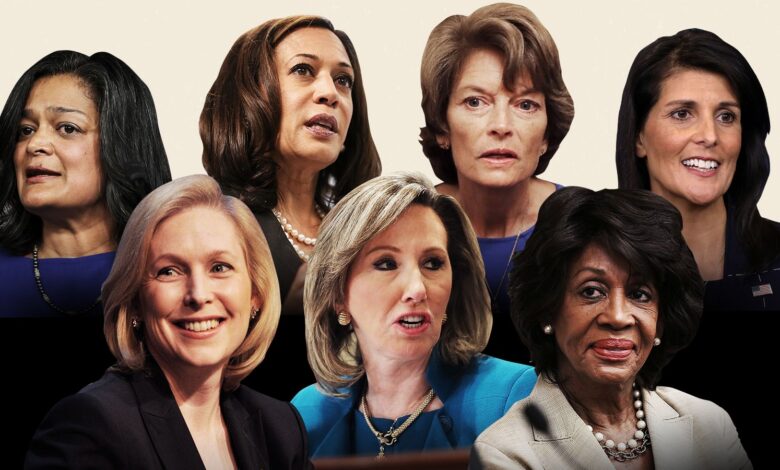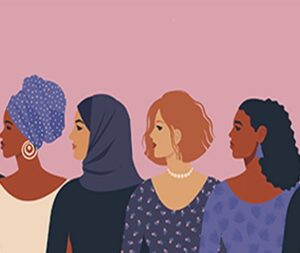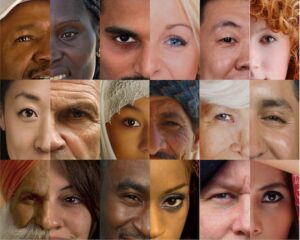Women in Politics: Breaking Barriers and Making Change

Introduction
Women’s participation in politics has been a topic of discussion for decades. Historically, women have faced significant barriers to entering political leadership positions, and their representation in politics has been limited.
However, over the years, women’s participation in politics has increased, and this has had a positive impact on society. Women bring diverse perspectives and experiences to political leadership, and their inclusion ensures that policies and laws reflect the needs and aspirations of all members of society.
Additionally, women’s participation in politics serves as an inspiration for young girls and women who aspire to leadership positions, and it provides them with opportunities to develop skills, build networks, and gain experience that can be beneficial in other areas of their lives.
Moreover, Despite the progress that has been made, women still face numerous barriers that prevent them from participating fully in politics. Addressing these barriers and creating an enabling environment that encourages women to participate in politics fully is crucial for creating a more inclusive society that benefits everyone.
Global trends in women’s political participation
Women are becoming more active in political life, but the rate of change is too slow for those who care about equality. Women’s political participation has increased in recent years, especially in high-income countries.
In addition, A large number of countries now have more women holding parliamentary seats than men. In the United States, more than one-third of representatives in the Senate and more than one-half of representatives in the House of Representatives are now women. The percentage of female parliamentary representatives varies greatly, ranging from only 10% in the Palestinian territories to 95% in the Cook Islands.
Further, The representation of women in the parliaments of some countries has increased significantly since the mid-1990s. For example, the percentage of women in the parliaments of the United Kingdom, Sweden, France, Germany, Greece, Italy, Japan, Luxembourg, New Zealand, Spain, and Switzerland has increased by more than 30% over this period.
However, the representation of women in many low-income countries is relatively unchanged. There have been no major increases in the representation of women in these countries in recent years.

The situation in Asia-Pacific
The UN Women website provides comprehensive data on the current state of affairs in this region, showing that women hold only 19.2% of parliamentary seats in the region. Some countries, such as New Zealand and Australia, have made great strides in this area, with women holding more than 30% of parliamentary seats.
However, in other countries, such as Pakistan and Afghanistan, women are severely underrepresented in political leadership positions. There are still very few women holding positions of authority in both private and public sectors in the region.
Further, This means that many people don’t have access to the services they need. There are also fewer women in the military than there used to be. This is why women are not allowed to hold positions in the military in some countries. Women are also less likely to be hired in government agencies, and they often receive lower pay than men.
Moreover, there are some countries where women hold more than 50% of parliamentary seats. For instance, Papua New Guinea holds women to more than 50% of its parliament.
The importance of women in politics
It is clear that increasing the number of women in political leadership positions is vital for achieving gender equality. Women’s voices need to be heard in decision-making processes, and their perspectives need to be taken into account when formulating policies. This is particularly important in areas such as healthcare, education, and social welfare, where women’s needs are often overlooked.
Representation
One of the significant reasons why women’s participation in politics is crucial is that they bring diversity to political leadership. Women have different life experiences and perspectives from men, and their inclusion ensures that policies and laws reflect the needs and aspirations of all members of society.
Additionally, This is particularly important in issues affecting women, such as reproductive rights, gender-based violence, and equal pay. Having women in political leadership positions ensures that these issues are given the attention they deserve and that policies are formulated to address them.

Role Models Women’s
Women are encouraged to take up leadership roles because of the significant influence they have over society and politics. There are many opportunities for women in politics today.
However, many people aren’t aware of this and assume that women are only interested in caring for their families. This is not true. Women are active in politics, serving in various roles. Many people think that women can’t make great leaders, but this is simply untrue.
In addition, Today, women in politics have become more successful than ever before. There are a number of reasons why women can excel in positions of political leadership. First, women have a keen interest in education. They are knowledgeable about various topics and often speak on their favorite issues. Second, women have a unique perspective.

Empowerment
Women’s participation in politics can be empowering. It can help them to develop valuable skills such as decision making, communication, leadership, and problem solving.
Additionally, women who are leaders can encourage other women to take on leadership roles in their communities. It’s also possible to be an effective political leader if you focus on building and expanding the power of people in your community.
Further, You may be able to help people in your community, and this can empower them. You can be an effective leader if you empower others to do what they can to make their community better.
Moreover, Women’s participation in politics has led to increased employment and wage parity between men and women. When women run for office, they have a higher chance of getting elected. There are other ways that women can be empowered.

Improved Decision-Making
Some researchers have found that groups that are made up of diverse groups make better decisions than homogenous groups. Women who have participated in politics have shown that diverse groups make better decisions than homogenous groups.
In addition, This is why it is important to encourage women to participate in politics, as they may bring a different perspective to the table. In addition, it is important to make sure that women have an equal voice in decision-making processes. Many politicians have been criticized for not including women in their political parties.
Moreover, Some politicians even argue that the gender imbalance in their party is intentional. Others, however, think that they are just trying to stay in office. In the U.S., women represent only about twenty percent of members in the House of Representatives and less than twenty-five percent in the Senate.

The benefits of women’s political participation
There are many benefits to increasing the number of women in political leadership positions. Women bring a unique perspective to politics, which can help to address issues that might otherwise be overlooked.
In addition to bringing a different perspective, women also bring new skills to the table, including more effective communication and conflict resolution skills. Having more women in politics will make everyone look at the world with a broader lens, which can be good for everyone.
Further, Women also bring a new perspective to policy-making, which can help to create better policies. Because men tend to focus on short-term profits while women tend to focus on long-term solutions, women are more likely to look at problems in a holistic way. This can be very helpful to people who are dealing with problems.
Moreover, Studies have also shown that having more women in politics can lead to better outcomes in areas such as education, healthcare, and economic development.
Barriers to women’s political participation
Women’s political participation is crucial for ensuring that diverse perspectives are considered when formulating policies and making decisions that affect society. However, women face numerous barriers that prevent them from participating fully in politics.
Cultural and Societal Barriers
Cultural and societal barriers can be major obstacles to women’s political participation. In some cultures, women have been forced to prioritise their family duties above their career and public service.
In addition, This has led to a lack of understanding about women’s issues and political involvement. In some countries, people believe that men are better at politics than women. As a result, men are given more opportunities than women to become politicians.
Moreover, These barriers cause some women to shy away from pursuing political involvement. Some women have been labelled as ‘brave’ and ‘champion’ in the media, but they have been rejected for actually being brave and championing for equality in political participation.

Structural Barriers
Structural barriers, such as discriminatory laws and policies, also hinder women’s political participation. In some countries, laws prevent women from owning property, inheriting assets, and participating in political activities.
Further, Many factors keep people from being active. Some of these factors include the following. The first one is discriminatory laws and policies. These laws can keep women from having their own property, their own bank accounts, or being allowed to inherit an inheritance. There are many laws that prevent women from being active.
For example, in some countries, women are not allowed to own property. Another factor is the structure of a political party. Women are not given equal access to leadership positions in political parties.
Moreover, If you want to have your voice heard, you may have to fight for your rights. If you don’t, you will never be able to do anything about it. You will always be a second class citizen.
Additionally, political parties may have structures that discriminate against women, such as gender quotas that limit their representation in leadership positions.

Economic Barriers
Women are more likely to experience poverty, and poverty can limit their access to education, healthcare, and other resources that would enable them to participate in politics. Also, political campaigns often require a significant amount of financial resources, and women may not have the financial resources necessary to participate in political campaigns.
In addition, This is especially true if they are not well-off financially. If women are not well-off financially, they are less likely to invest in their careers or in their families. This is especially true if they are married. The only time they might consider investing in their family is when they first get married.
Moreover, Since men typically make more money than women, they are more likely to have enough income to cover the expenses of raising children and their family. They also have more financial resources to invest in political campaigns than women who have low incomes. This is a big problem in politics.

Violence and Harassment
Violence and harassment are also significant barriers to women’s political participation. Women who participate in politics are often subjected to violence and harassment, including physical violence, online harassment, and threats to their personal safety.
Additionally, This violence and harassment can discourage women from participating in politics and limit their ability to make meaningful contributions to society.

Conclusion
We believe that increasing women’s political participation is crucial for achieving gender equality. While progress is being made in some areas, there is still much work to be done.
In addition, By addressing the structural and cultural barriers that prevent women from participating in politics, we can create a more equitable and just society for all. We hope that this article has provided you with a comprehensive overview of the current state of affairs in women’s political participation, and we encourage you to join us in our efforts to promote gender equality across the globe.



